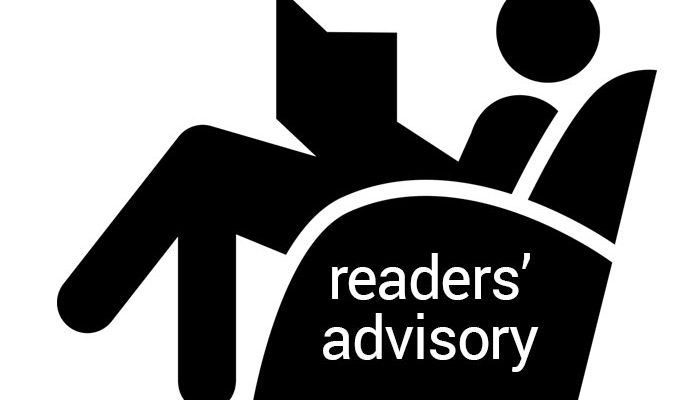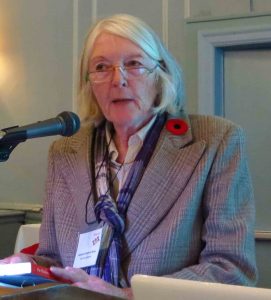It’s a new year and a great time for making reading resolutions. One form this resolution may take is to respond to a Reading Challenge. Taking this type of challenge can not only be fun, but also a great opportunity to change some of our entrenched reading habits.

Transformative: Understanding the Reading Experience
How can understanding our own experience of reading help us improve our Readers’ Advisory (RA) service to our library users? How can understanding more about the experience that a reader is seeking help us to provide more targeted recommendations?
RA in a Day 2014, an initiative of Readers’ Advisory Committee of the Ontario Public Library Association, provided some answers through the work of three individuals working in the field of reading.

Catherine Sheldrick Ross is an undisputed expert in the field of reading research. She’s been teaching, studying, and presenting in this area for over 30 years. Ross’s empiric research on reading for pleasure, based on open-ended interviews with avid readers, is well-known to librarians serving adult readers. She is a strong advocate for collections and services that support readers in general and especially reading for pleasure.
“RA is a conversation, and the library is the place that fosters that conversation.” Catherine Sheldrick Ross
In The Pleasures of Reading: A Booklover’s Alphabet (Libraries Unlimited/ ABC-CLIO, 2014) Ross explores the rich diversity of the reading experience when people read for pleasure. In her research Ross posed some key questions of those she interviewed:
- Are you a selective reader, feeling your time is very limited and what you read must always be very good and worthwhile? Or are you an omnivorous reader, reading everything from quality literature to genre novels and books others dismiss as “trash”?
- Do you read only fiction, only nonfiction, or both?
- Do you re-read books, feeling that books are old friends who should be re-visited and re-understood? Or do you feel that there are so many books to read and so little time, that you never or rarely read a book more than once?
- How do you find your books? Do you have an organized system that you employ, or do you find books more randomly and haphazardly from an eclectic group of sources?
Some of the conclusions are valuable for any RA librarian to consider:
- Reading is situational; our choices are dependent on what else is going on in our lives at the moment.
- Reading is an escape, but it is also a way to connect with the world.
- Understanding the expectations of a reader can help us meet their needs more effectively.
“Although learning about RA begins with reflecting on our own experience, the most important dictum of RA is four little words: It’s Not About You. Keeping our own opinions and judgments out of the picture can be challenging!” Laura Kaminker
Ross’ research is reinforced in the work of Jo Altilia and Paulette Rothbauer. They observe that reading choices and desires can differ over a lifespan; we can’t pigeonhole a reader’s preferences according to their age or our own perceptions as RA librarians.

Jo Altilia is the director of Toronto-based Literature for Life. One of their programs supports reading in the lives of young, underprivileged mothers. For them reading is a tool to improve their lives, but it is also a shared social experience. Their reading choices are influenced by content that is accessible and relevant to their life experience.
Focusing on a different demographic, Paulette Rothbauer (Western University) conducts research into reading among the elderly (those 70+). Most of those who read into old age are those who have been lifelong readers. They read to connect, to learn, and to seek pleasure but also to relieve boredom or loneliness.
Ross, Altilia, and Rothbauer share a passion for reading and how it informs our lives. At all life stages and in all walks of life, reading has a profound and lasting impact.
Melanie Kindrachuk is a Public Service Librarian at the Stratford Public Library. She currently sits on the Readers’ Advisory and Evergreen Award Committees.
